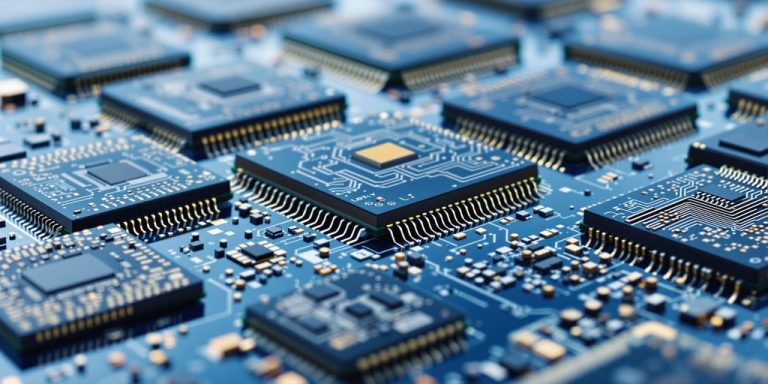South Korea is set to launch a substantial $10 billion loan program aimed at revitalizing its semiconductor industry, which faces increasing competition from China and uncertainties stemming from the upcoming U.S. administration. The initiative, announced by the finance ministry, will provide low-interest loans through state-run banks, with a portion allocated for infrastructure improvements at a new chip complex.
Key Takeaways
- South Korea plans to roll out 14 trillion won ($10 billion) in loans to support its chip industry.
- The loans will be distributed through state-run banks, with 1.8 trillion won earmarked for power transmission infrastructure.
- The initiative responds to growing competition from China’s semiconductor sector and potential policy shifts in the U.S.
Background of the Initiative
The South Korean government has recognized the pressing need to bolster its semiconductor industry, particularly as it faces fierce competition from Chinese manufacturers. The planned loans are part of a broader strategy to ensure that South Korea remains a key player in the global semiconductor market.
The finance ministry emphasized that the loans will help companies navigate the current crisis and position themselves for future growth. This initiative comes at a time when South Korea’s semiconductor sector is experiencing significant challenges, including a decline in market share and profitability.
Details of the Loan Program
The $10 billion loan program will be structured as follows:
- Total Amount: 14 trillion won ($10 billion)
- Interest Rate: Low-interest loans to encourage participation
- Infrastructure Investment: 1.8 trillion won allocated for power transmission lines to support a new chip complex in Yongin and Pyeongtaek.
This complex is expected to become the world’s largest high-tech chipmaking cluster, attracting both chip equipment manufacturers and fabless companies.
Implications of U.S. Policy Changes
The South Korean government is particularly concerned about the potential impact of the new U.S. administration on global trade and investment. With President-elect Donald Trump set to take office, there are fears that changes to key policies, such as the Inflation Reduction Act and the Chips and Science Act, could reduce incentives for investment in the U.S.
Trump’s recent statements regarding tariffs on imports from Mexico, Canada, and China have raised alarms in South Korea, as these measures could further complicate the competitive landscape for South Korean chipmakers.
Competitive Landscape
South Korea’s semiconductor industry, home to major players like Samsung Electronics and SK Hynix, has been facing increasing pressure from Chinese competitors. Recent reports indicate that rising supplies of traditional chips from Chinese firms have negatively impacted Samsung’s earnings, highlighting the urgent need for strategic support.
The government’s loan initiative is seen as a critical step in addressing these challenges and ensuring that South Korea can maintain its leadership in semiconductor technology.
Conclusion
As South Korea prepares to implement this ambitious loan program, the focus will be on how effectively it can support its semiconductor industry in overcoming current challenges and seizing future opportunities. The government’s proactive approach reflects a commitment to sustaining its position in a rapidly evolving global market, where innovation and competitiveness are paramount.
